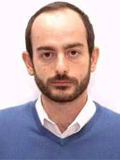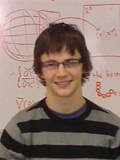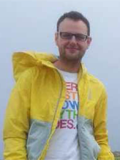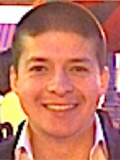By Geraint Jones
The EPRSC-sponsored Engineering Nonlinearity (ENL) programme grant is making an impact by creating new nonlinear dynamic design tools and methods for engineering structures. The ENL ethos is rapidly spreading around the UK dynamics community, as evidenced by the success of five former researchers on the project securing academic positions at UK Universities, to a large part due to their pioneering work on ENL:

Dr Andrea Cammarano
Dr Andrea Cammarano was appointed as a Lecturer in Systems Power and Energy, School of Engineering, University of Glasgow in January 2015.
– Andrea’s work on ENL investigated nonlinear and power aspects of vibration following on from his PhD “Increasing the bandwidth of vibration based Energy harvesters”

Dr Peter Green
Dr Peter Green was appointed as a Lecturer in Uncertainty and Engineering, School of Engineering and Institute for Risk and Uncertainty, University of Liverpool in 2015
– Peter’s work on Engineering Nonlinearity focussed on Bayesian system identification, including Markov chain Monte Carlo algorithms which form a fundamental part of Bayesian nonlinear system identification.

Dr Ifigeneia Antoniadou
Dr Ifigeneia Antoniadou was appointed as a Lecturer, Department of Mechanical Engineering, University of Sheffield in 2015
– Ifigeneia’s work on ENL focussed on system identification, and applying systems engineering and information extraction tools for decision-based design of engineering models.

Dr Nikolaos Dervilis
Dr Nikos Dervilis was appointed as a Lecturer, Department of Mechanical Engineering, University of Sheffield in January 2016
– Nikos’s work on ENL focussed on using machine learning techniques to deal with identifying nonlinear models from data. In particular, when applying them to renewable energy systems.

Dr Julián Londoño
Dr Julián Londoño was appointed as a Lecturer, University of Exeter in February 2016.
– Julián’s work was focused on the dynamics of highly flexible aircraft. In particular the modal testing of these type of structures.
The ENL team is made up of staff from the Universities of Sheffield, Bristol, Cambridge, Southampton and Swansea, and is supported by nine partners from Industry.